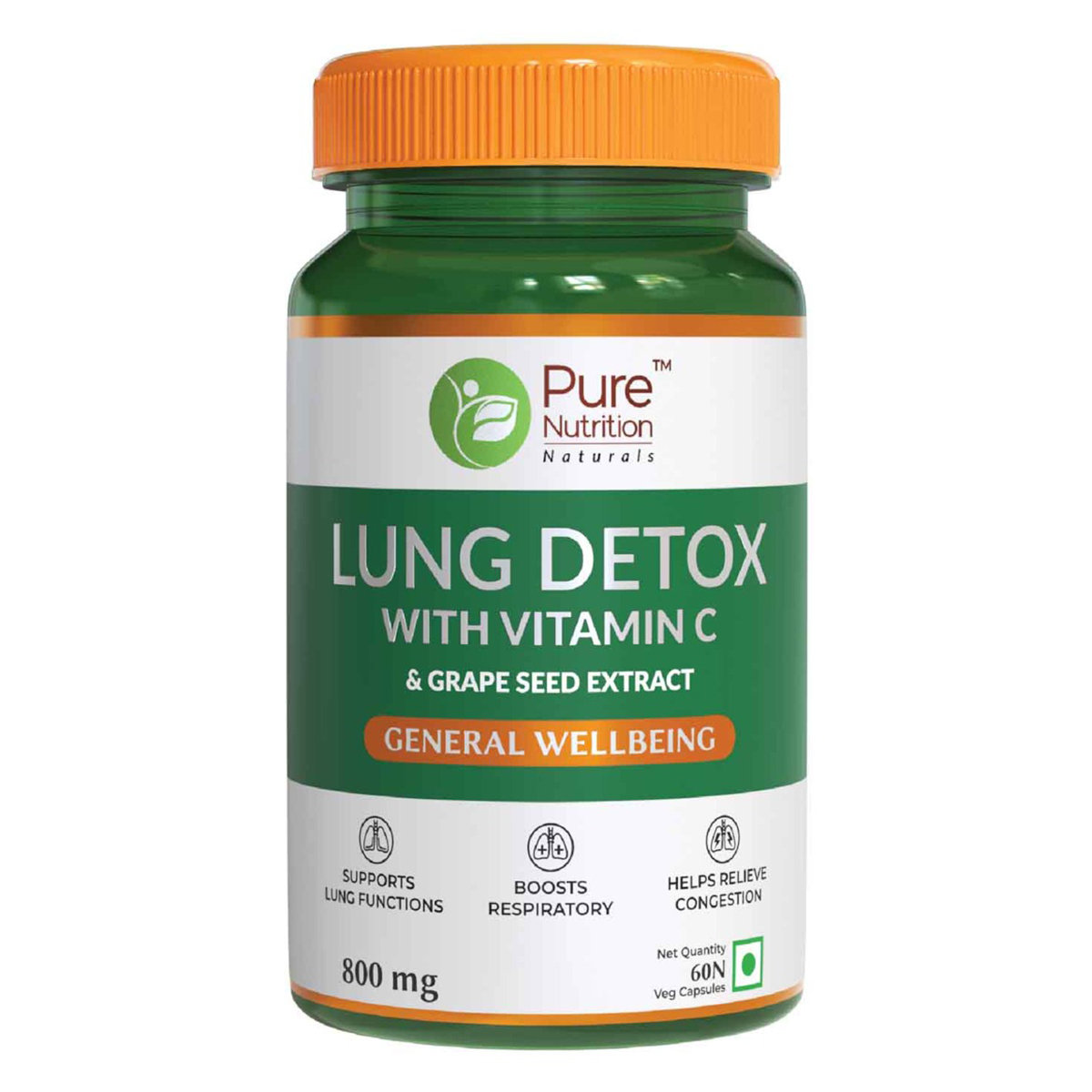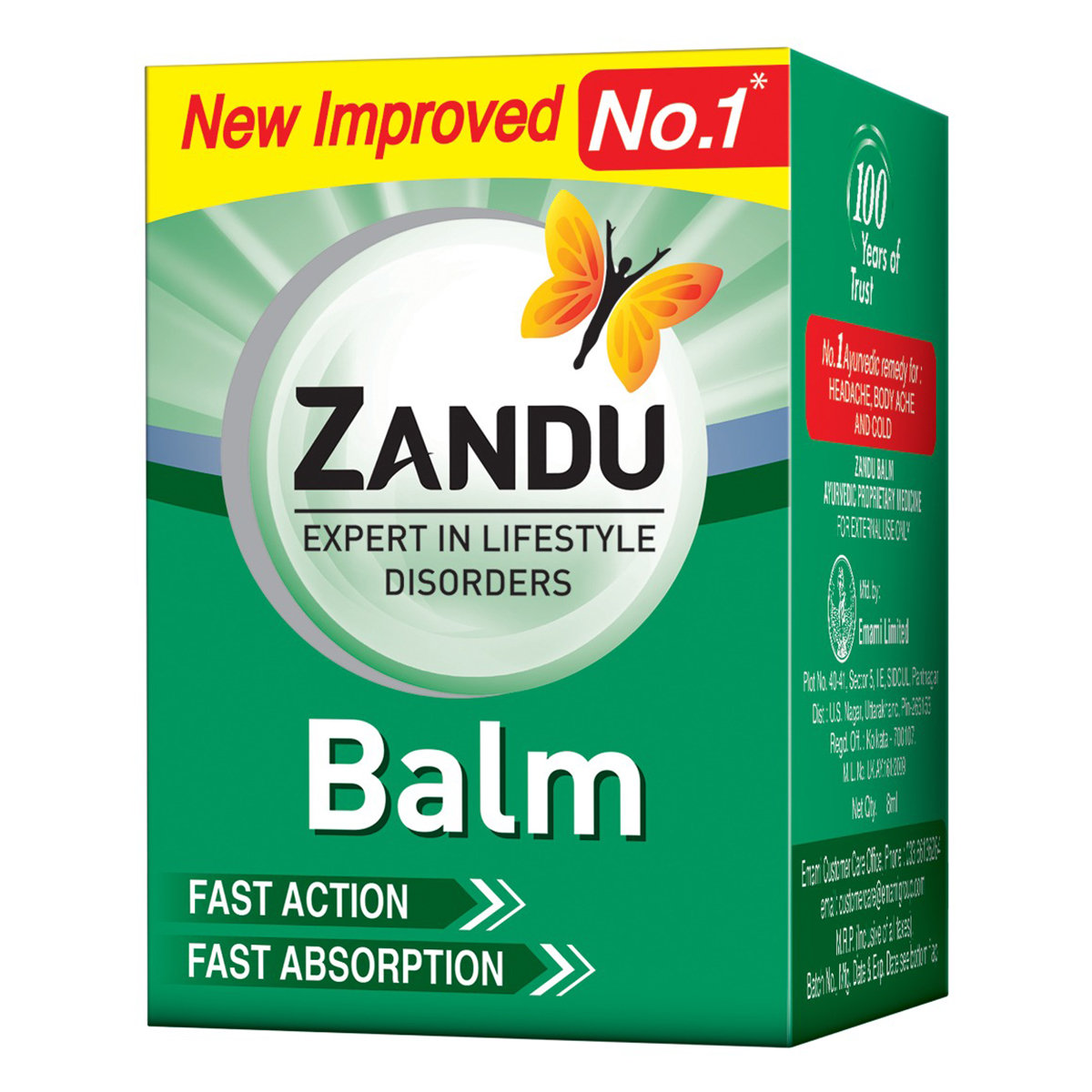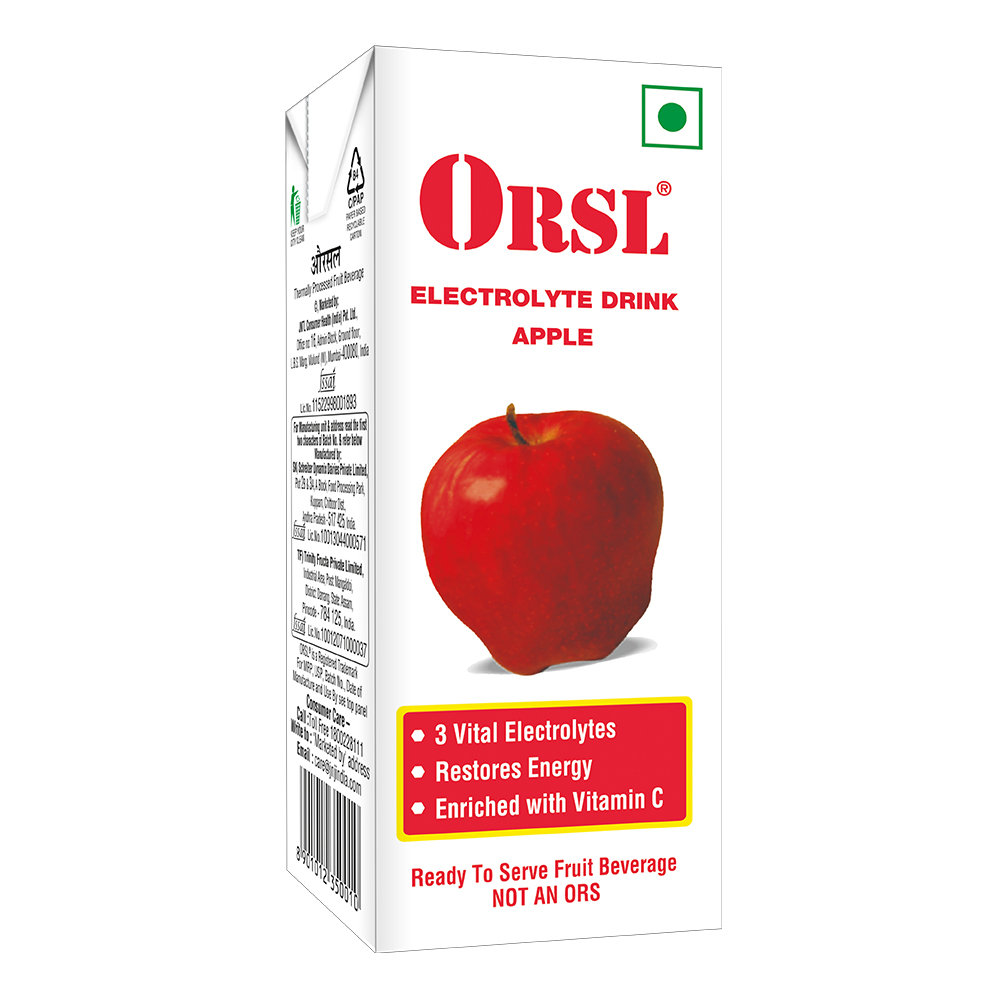Kuffdryl Syrup
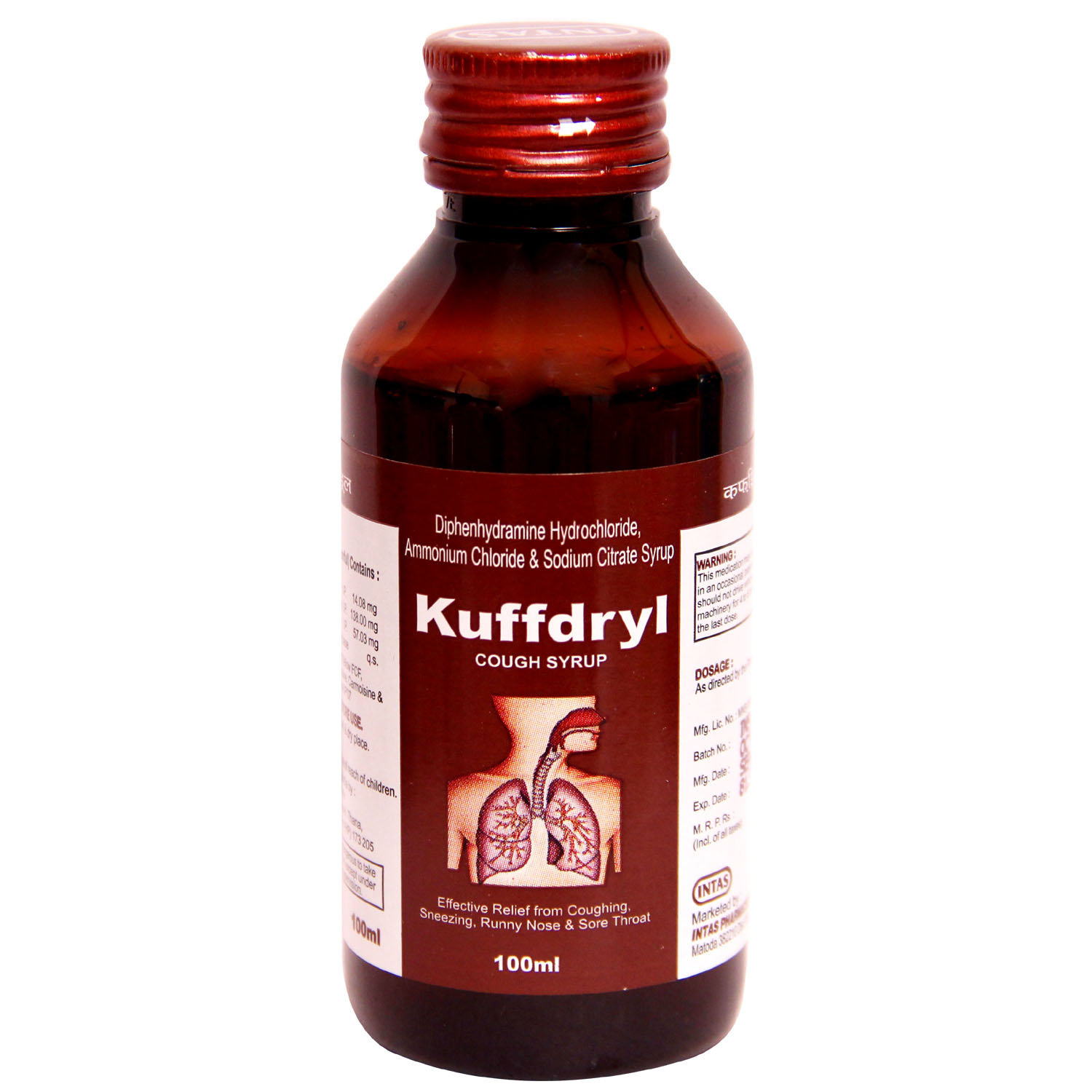

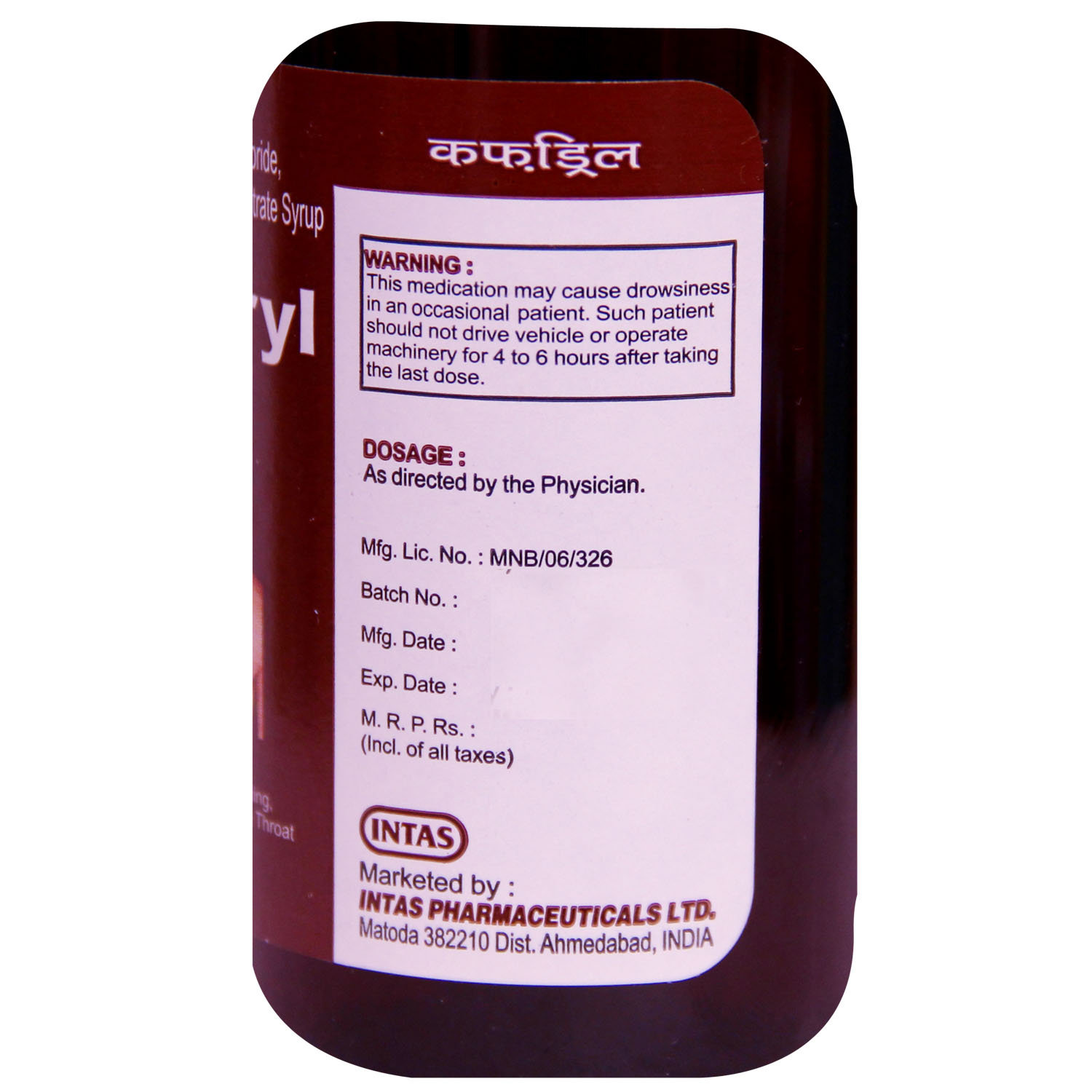
MRP ₹119.5
(Inclusive of all Taxes)
₹17.9 Cashback (15%)
know your delivery time
Provide Delivery Location
Manufacturer/Marketer :
Consume Type :
Expires on or after :
Return Policy :

Secure Payment

Trusted by 8 Crore Indians

Genuine Products
Therapeutic Class
Country of origin
Manufacturer/Marketer address
Author Details
We provide you with authentic, trustworthy and relevant information
FAQs
Disclaimer
Alcohol
Safe if prescribed
Avoid consumption of alcohol while taking Kuffdryl Syrup as it may cause increased dizziness.
Pregnancy
Consult your doctor
Please consult your doctor if you have any concerns regarding this; your doctor will prescribe only if the benefits outweigh the risks.
Breast Feeding
Consult your doctor
Avoid taking Kuffdryl Syrup if you are breastfeeding. Consult your doctor if you have any concerns.
Driving
Safe if prescribed
Kuffdryl Syrup may cause dizziness. Do not drive or operate machinery unless you are alert.
Liver
Consult your doctor
Dose adjustment may be needed in patients with liver impairment. Please consult your doctor if you have a liver impairment or any concerns regarding this.
Kidney
Consult your doctor
Dose adjustment may be needed in patients with kidney impairment. Please consult your doctor if you have kidney impairment or any concerns regarding this.
Children
Safe if prescribed
Kuffdryl Syrup should be given to children only if prescribed by the doctor.
About Kuffdryl Syrup
Kuffdryl Syrup belongs to a group of medicines called expectorants and cough products used to provide relief from cough. Additionally, Kuffdryl Syrup may also help in providing relief from allergy and nasal congestion due to cold. Coughing (dry or productive) is the body's way of clearing irritants (like allergens, mucus or smoke) from airways, thereby preventing respiratory infection.
Kuffdryl Syrup contains Ammonium chloride, Diphenhydramine hydrochloride, and Sodium citrate. Ammonium chloride helps remove phlegm/mucus from the airways by decreasing its stickiness. Diphenhydramine hydrochloride works by blocking the action of a chemical substance called histamine, which is responsible for causing allergic reactions. Sodium citrate helps in reducing congestion, thereby making it easier to cough out through the mouth. Together, Kuffdryl Syrup provides relief from cough.
You are advised to take Kuffdryl Syrup for as long as your doctor has prescribed it for you, depending on your medical condition. In some cases, you may experience certain common side-effects such as headache, stomach upset, dizziness, tiredness, and dry mouth. Most of these side effects do not require medical attention and will resolve gradually over time. However, you are advised to talk to your doctor if the side effects persist or worsen.
Consult your doctor if you are pregnant or breastfeeding. Kuffdryl Syrup may cause dizziness, so drive only if you are alert. Kuffdryl Syrup should be given to children only if prescribed by the doctor. Avoid consuming alcohol with Kuffdryl Syrup as it could lead to increased dizziness. Inform your doctor about all the prescription, non-prescription and herbal medicines you are taking to rule out any side effects/interactions.
Uses of Kuffdryl Syrup
Medicinal Benefits Mweb
Key Benefits
Kuffdryl Syrup is a combination of three drugs, namely: Ammonium chloride and Diphenhydramine hydrochloride, and Sodium citrate. Kuffdryl Syrup is used to provide relief from a cough accompanied by cold symptoms such as sore throat, runny nose, watery eyes, and sneezing. Additionally, Kuffdryl Syrup helps in providing relief from allergy. Ammonium chloride is an expectorant that helps remove phlegm/mucus from the airways by decreasing its stickiness. Diphenhydramine hydrochloride is an antihistamine that works by blocking the action of a chemical substance called histamine, which is responsible for causing allergic reactions. Sodium citrate is a mucolytic agent that helps in loosening the congestion, thereby making it easier to cough out through the mouth. Together, Kuffdryl Syrup provides relief from cough.
Directions for Use
Side Effects of Kuffdryl Syrup
- Stomach upset
- Dizziness
- Sleepiness
- Dry mouth
- Headache
Drug Warnings
Do not take Kuffdryl Syrup if you are allergic to any of its contents. Inform your doctor if you have asthma, prostate problems, narrow-angle glaucoma, stomach or bowel ulcers, glucose-galactose malabsorption, sucrase-isomaltase deficiency, fructose intolerance, kidney or liver problems; if you are taking antidepressants or anti-Parkinson drugs or have taken them in the last 14days. Consult your doctor if you are pregnant, planning for pregnancy or breastfeeding. Kuffdryl Syrup may cause dizziness, so drive only if you are alert. Avoid consuming alcohol with Kuffdryl Syrup as it could lead to increased dizziness.
Drug-Drug Interactions
Drug-Drug Interactions
Login/Sign Up
Taking Kuffdryl Syrup 100 ml with Sodium oxybate can enhance the sedative effects on the central nervous system.
How to manage the interaction:
Taking Kuffdryl Syrup 100 ml with Sodium oxybate is not recommended, but it can be taken if prescribed by a doctor. However contact your doctor if you experience shortness of breath, increased sweating, palpitations, or confusion. Do not stop using any medications without consulting a doctor.
When Thioridazine is taken with Kuffdryl Syrup 100 ml, it can slow down the way Kuffdryl Syrup 100 ml is broken down in the body.
How to manage the interaction:
Taking Kuffdryl Syrup 100 ml with Thioridazine is not recommended, please consult your doctor before taking it. It can be taken if your doctor advises it. Do not stop taking any medication without consulting your doctor.
When Kuffdryl Syrup 100 ml is taken with Eliglustat, it can cause a decrease in metabolism.
How to manage the interaction:
Taking Kuffdryl Syrup 100 ml with Eliglustat is not recommended, please consult your doctor before taking it. It can be taken if prescribed by your doctor. Do not stop taking any medication without consulting your doctor.
Taking Kuffdryl Syrup 100 ml with Potassium chloride can increase the risk of stomach ulcers.
How to manage the interaction:
Taking Kuffdryl Syrup 100 ml with Potassium chloride is not recommended, as it can lead to an interaction, but it can be taken if a doctor has prescribed it. However, if you experience severe stomach pain, bloating, sudden lightheadedness or dizziness, nausea, vomiting (especially with blood), decreased hunger, or dark, tarry stools, contact your doctor. Do not stop taking any medication without consulting your doctor.
Taking Kuffdryl Syrup 100 ml and Potassium citrate together can increase the risk of stomach ulcers, bleeding, and gastrointestinal injury.
How to manage the interaction:
Taking Kuffdryl Syrup 100 ml with Potassium citrate is not recommended, as it may lead to an interaction, it can be taken if prescribed by the doctor. However, if you experience severe stomach pain, bloating, sudden lightheadedness or dizziness, nausea, vomiting (especially with blood), decreased hunger, or dark, tarry stools, consult the doctor immediately. Do not discontinue any medications without a doctor's advice.
Topiramate can induce elevated body temperature and decreased sweating, which can be exacerbated when combined with drugs that have similar effects, such as Kuffdryl Syrup 100 ml.
How to manage the interaction:
Although taking Kuffdryl Syrup 100 ml with Topiramate can possibly result in an interaction, they can be taken together if prescribed by your doctor. It is essential to stay hydrated by drinking enough fluids, especially in hot weather and when doing physical activity. Contact your doctor immediately if you notice decreased sweating, fever, dizziness, drowsy, or lightheadedness. Do not discontinue using any medications without consulting a doctor.
Kuffdryl Syrup 100 ml reduces the blood levels and effectiveness of tamoxifen.
How to manage the interaction:
Although taking Kuffdryl Syrup 100 ml with Tamoxifen can possibly reduce the effectiveness of Tamoxifen, they can be taken together if prescribed by your doctor. Do not stop using any medications without first talking to your doctor.
Kuffdryl Syrup 100 ml increases the blood levels of Brexpiprazole. This increases the risk of Side effects.
How to manage the interaction:
Taking Kuffdryl Syrup 100 ml with Brexpiprazole together can possibly result in an interaction, but it can be taken if your doctor has advised it. If you notice any of these symptoms - feeling tired, unusual muscle movements, muscle spasms, shaking or jerking in your arms and legs, feeling dizzy or lightheaded, or fainting - contact your doctor right away. Do not stop using any medications without talking to a doctor.
Coadministration of Zonisamide with Kuffdryl Syrup 100 ml can induce elevated body temperature and decreased sweating.
How to manage the interaction:
Although taking Kuffdryl Syrup 100 ml with Zonisamide can result in an interaction, they can be taken together if prescribed by your doctor. It is essential to stay hydrated by drinking enough fluids, especially in hot weather and when doing physical activity. Contact a doctor immediately if you notice decreased sweating, fever, dizziness, drowsy, or lightheadedness. Do not discontinue using any medications without consulting a doctor.
Taking Kuffdryl Syrup 100 ml with Esketamine can increase the risk of adverse effects.
How to manage the interaction:
Co-administration of Kuffdryl Syrup 100 ml with Esketamine can result in an interaction, but it can be taken if your doctor has advised it. However, contact your doctor if you experience drowsiness, confusion, or difficulty concentrating. Do not discontinue any medications without consulting a doctor.
Drug-Food Interactions
Drug-Food Interactions
Login/Sign Up
Drug-Diseases Interactions
Drug-Diseases Interactions
Login/Sign Up
Drug-Drug Interactions Checker List
- ISOCARBOXAZID
- PHENELZINE
- SELEGILINE
- TRANYLCYPROMINE
- RASAGILINE
Habit Forming
Diet & Lifestyle Advise
- Gargle with salt water for relief from sore throat.
- Avoid smoking and consumption of alcohol.
- Avoid dairy products such as milk, as it may increase mucus production.
- Avoid processed or refined foods. Replace baked foods, fried foods, white bread, white pasta, french fries, sugary desserts and chips with green leafy vegetables.
- Drink plenty of fluids to avoid a dry throat. It also helps loosen mucus.
- Avoid citrus fruits as they may worsen the cough.
- Eat fruits rich in water content, such as pears, watermelon, peaches and pineapples.
All Substitutes & Brand Comparisons

Have a query?
Buy best Respiratory System products by
Cipla Ltd
Lupin Ltd
Glenmark Pharmaceuticals Ltd
Sun Pharmaceutical Industries Ltd
Alkem Laboratories Ltd
Macleods Pharmaceuticals Ltd
Mankind Pharma Pvt Ltd
Zydus Healthcare Ltd
Leeford Healthcare Ltd
Dr Reddy's Laboratories Ltd
Zydus Cadila
Abbott India Ltd
Intas Pharmaceuticals Ltd
Alembic Pharmaceuticals Ltd
German Remedies Ltd
Centaur Pharmaceuticals Pvt Ltd
Ipca Laboratories Ltd
Aristo Pharmaceuticals Pvt Ltd
Pristine Pearl Pharma Pvt Ltd
Wockhardt Ltd
GlaxoSmithKline Pharmaceuticals Ltd
Zuventus Healthcare Ltd
Koye Pharmaceuticals Pvt Ltd
Micro Labs Ltd
Blue Cross Laboratories Pvt Ltd
Medishri Healthcare Pvt Ltd
Med Manor Organics Pvt Ltd
Indiabulls Pharmaceuticals Pvt Ltd
Adonis Laboratories Pvt Ltd
FDC Ltd
Fourrts India Laboratories Pvt Ltd
Tablets India Ltd
J B Chemicals & Pharmaceuticals Ltd
Shreya Life Sciences Pvt Ltd
Divine Savior Pvt Ltd
Indoco Remedies Ltd
Seagull Pharmaceutical Pvt Ltd
Yash Pharma Laboratories Pvt Ltd
Torque Pharmaceuticals Pvt Ltd
Uniza Healthcare Llp
Wings Pharmacuticals Pvt Ltd
Biological E Ltd
Corona Remedies Pvt Ltd
Icarus Health Care Pvt Ltd
Steris Healthcare
Apex Laboratories Pvt Ltd
Geno Pharmaceuticals Pvt Ltd
Navil Laboratories Pvt Ltd
Precept Pharma
Aar Ess Remedies Pvt Ltd
La Renon Healthcare Pvt Ltd
Torrent Pharmaceuticals Ltd
Astra Zeneca Pharma India Ltd
Biochem Pharmaceutical Industries Ltd
Comed Chemicals Ltd
Entod Pharmaceuticals Ltd
Franco Indian Pharmaceuticals Pvt Ltd
Healthgate Pvt Ltd
Intra Life Pvt Ltd
Megma Healthcare Pvt Ltd
Pfizer Ltd
RPG Life Sciences Ltd
Unipark Biotech Pvt Ltd
Votary Laboratories (India) Ltd
Wanbury Ltd
Brinton Pharmaceuticals Ltd
Dolvis Bio Pharma Pvt Ltd
Eisen Pharmaceutical Co Pvt Ltd
Group Pharmaceuticals Ltd
Knoll Pharmaceuticals Ltd
Morepen Laboratories Ltd
Panacea Biotec Ltd
Prevego Healthcare & Research Pvt Ltd
Rnd Laboratories Pvt Ltd
Sanatra Healthcare Ltd
Skn Organics Pvt Ltd
Stedman Pharmaceuticals Pvt Ltd
Thuyam Life Pvt Ltd
Timon Pharmaceuticals Pvt Ltd
Aglowmed Pharmaceuticals Ltd
Ajanta Pharma Ltd
Alniche Life Sciences Pvt Ltd
Bio Warriors Pharmaceucticals Pvt Ltd
Biochemix Health Care Pvt Ltd
Cadila Healthcare Ltd
Cadila Pharmaceuticals Ltd
Caplet India Pvt Ltd
Chemo Healthcare Pvt Ltd
Delcure Life Sciences Ltd
East West Pharma India Pvt Ltd
Elder Pharmaceuticals Ltd
Embiotic Laboratories (P) Ltd
Emcee Pharmaceuticals (P) Ltd
Foregen Healthcare Ltd
Hetero Healthcare Pvt Ltd
Incite Pharmaceuticals
Iva Healthcare Pvt Ltd
Kepler Healthcare Pvt Ltd
Kristal Pharmaceuticals
Lincoln Pharmaceuticals Ltd
Frequently Bought Together
Customers Also Bought

_0.jpg?tr=q-85)



